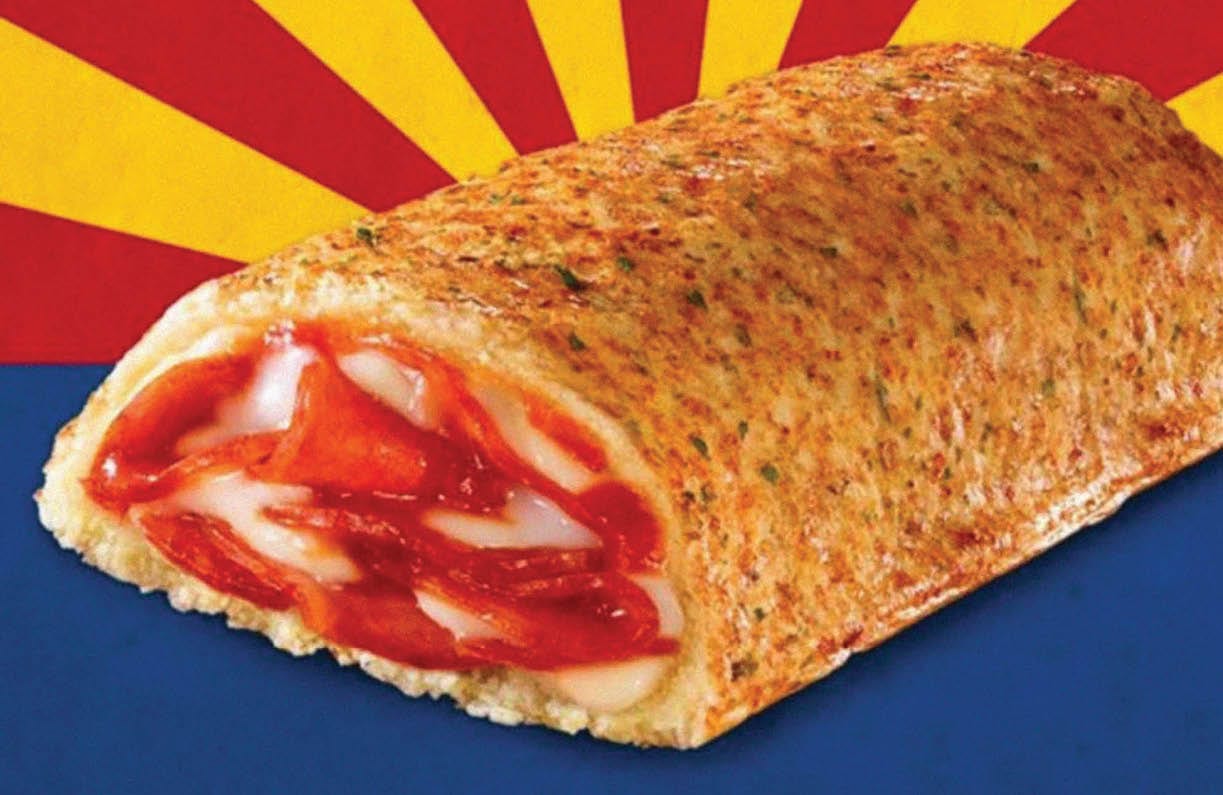How one alum’s ingenuity gave rise to a pop-culture icon
 When Paul Merage, BS 66, MBA 68, first conceived of the idea for Hot Pockets in the late 1970s, it was to address shifts in the American family. Hungry kids needed an after-school snack while moms were out working, and more people were eating on the run. Nearly 40 years and one memorable jingle later, the microwaveable sandwich, in flavors such as pepperoni pizza and cheeseburger, is forever embedded into the American consciousness. Before selling to Nestlé, Merage’s company, Chef America, was manufacturing 30 different products, including Lean Pockets, Croissant Pockets, Pizza Minis, and Toaster Melts, with annual sales of $750 million. Here’s a look at the rise to fame of Hot Pockets.
When Paul Merage, BS 66, MBA 68, first conceived of the idea for Hot Pockets in the late 1970s, it was to address shifts in the American family. Hungry kids needed an after-school snack while moms were out working, and more people were eating on the run. Nearly 40 years and one memorable jingle later, the microwaveable sandwich, in flavors such as pepperoni pizza and cheeseburger, is forever embedded into the American consciousness. Before selling to Nestlé, Merage’s company, Chef America, was manufacturing 30 different products, including Lean Pockets, Croissant Pockets, Pizza Minis, and Toaster Melts, with annual sales of $750 million. Here’s a look at the rise to fame of Hot Pockets.
1977
After stints as a marketer for major food companies, Merage mortgages his house and starts Chef America with his brother, David. They invent a frozen Belgian waffle for restaurants and coffee shops, earning millions.
1980
Merage has been spending evenings developing a portable stuffed sandwich, and Chef America introduces the Tastywich to restaurants (only ~10% of homes have microwaves). Merage continues testing crust recipes on family.
1983
The renamed Hot Pockets hit the market (still sold to businesses, not yet direct to consumers). The secret? A patented dough and a sleeve that essentially broils a “crispy crusty tender flaky crust.” High unemployment (10.8% in Dec. 1982) makes cheap, easy meals welcome.
“Try the Hot Pockets; they’re breathtaking.”
—Dr. Evil, from Austin Powers: The Spy Who Shagged Me
1985
Hot Pockets are sold in supermarkets nationwide. Microwave ovens are increasingly popular, now in nearly 25% of homes, according to the Bureau of Labor Statistics.
2001
Breakfast flavors of Hot Pockets rack up a whopping $50 million in year-one sales, according to The Wall Street Journal. Chef America adds 10% more filling to its products— without raising prices. Subsequent sales rise 32% in 2002, far outpacing the overall food industry.
2002
The Merage brothers sell Chef America to Nestlé for $2.6 billion, then devote themselves to philanthropy.
2005
Merage donates $30 million to UC Irvine business school, now named the Paul Merage School of Business.